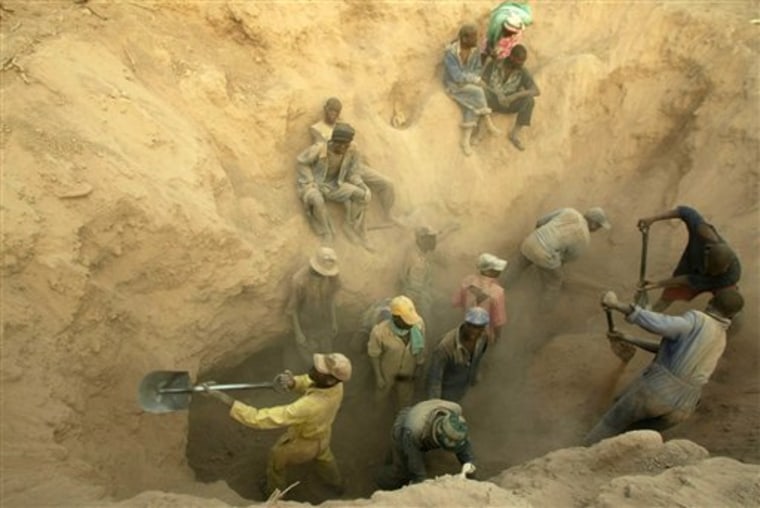Human Rights Watch said Friday that Zimbabwe's armed forces have taken over diamond fields in the east and killed more than 200 people, forcing children to search for the gems and beating villagers who get in the way.
Zimbabwe's deputy mining minister, Murisi Zwizwai, denied the allegations and said the military is there to secure the area.
More than 100 witnesses, miners, police officers, soldiers and children were interviewed for the Human Rights Watch report titled "Diamonds in the Rough." It details allegations of human rights abuses by Zimbabwean armed forces in their attempt to control access to the precious gems.
The New York-based group said researchers had gathered evidence of mass graves and accounts of an incident last year when military helicopters fired at miners, while armed soldiers on the ground chased villagers from the area.
"There are hundreds of victims of human rights abuses that are unwilling to come forward for fear of the military," Zimbabwe researcher Dewa Mavhinga said.
The report also alleges that some of the income from the diamond fields is going to officials of President Robert Mugabe's ZANU-PF party, long accused of trampling on human rights and democracy in the southern African country.
The international human rights watchdog is calling on Zimbabwe's coalition government, formed in February, to stop the alleged abuses and to prosecute those responsible.
It also is urging the international body that governs the global diamond industry to press Zimbabwe, a participant, to end the illegal trade in Marange diamonds. The Kimberley Process Certification Scheme, established in 2002, aims to stem the flow of "blood diamonds" being used to fund fighting across Africa. Participants are forced to certify the origins of the diamonds being traded. This assures consumers that by purchasing diamonds they are not financing war and human rights abuses.
Government minister denies charges
Kenneth Roth, executive director of Human Rights Watch, said the group is calling for the definition of blood diamonds to be broadened to include gems mined through "repression and violent abuses" by governments.
The Marange diamond fields were discovered in 2006 — at the height of Zimbabwe's political, economic and humanitarian crisis. Villagers rushed to the area and began finding diamonds close to the surface. Mining is now managed by Zimbabwe's Mining Development Corporation under protection of the military.
It is estimated that the diamonds could be worth $200 million a month to the cash-strapped country, but the Mining Development Corporation claimed in 2007 that it was made $15 million from gem exports.
Zwizwai, the Zimbabwean deputy minister, said the country did not have the money to fence off the area and so was using the military to secure the diamond fields.
He said there had been no deaths by the military but that there had been "skirmishes" among the illegal diggers, which resulted in three reported deaths and eight arrests.
"The special operation by security forces has been successful as evidenced by (the) order and sanity which now prevails in the Marange area," he told The Associated Press on the sidelines of a Kimberley Process meeting in neighboring Namibia.
